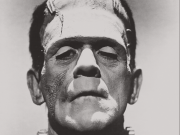Editor’s note: This article is a selection from “Books, Articles, and Items of Academic Interest” in the 2018 Winter issue of Academic Questions.
This quarter’s harvest of books of academic interest deals with higher order bamboozling. Howard S. Schwartz’s Political Correctness and the Destruction of the Social Order: Chronicling the Rise of the Pristine Self (Palgrave, 2016; just reissued in paperback) probes the now familiar topic of “political correctness.” Schwartz, an emeritus professor of organizational behavior, has ventured two previous volumes on “the psychological processes underlying political correctness,” an approach newly popularized by Greg Lukianoff and Jonathan Haidt in The Coddling of the American Mind: How Good Intentions and Bad Ideas Are Setting Up a Generation for Failure (Penguin, 2018).
Lukianoff and Haidt approach their quarry through Cognitive Behavioral Therapy, which aims to train people to change the way they think about life’s setbacks and challenges. Schwartz grounds his analysis in psychoanalytic theory. The divergence is apparent in the temperament of the two books. Lukianoff and Haidt treat the shouters-down and thuggish enforcers of the progressive orthodoxies as victims of teachers who have taught them bad ways to respond to life’s vicissitudes. Schwartz treats them as willing participants in “ambient rage.”
The “pristine self” of Schwartz’s title is identical to the “fragile” self described by Lukianoff and Haidt. Schwartz says this pristine self “is touched by nothing but love,” which ill suits a world in which we are touched by other forces. So the pristine self is fragile, and the fragile self is hopelessly in pursuit of a pristineness that not even the most rigorously policed regime of microaggression suppression will ever achieve.
Schwartz’s analysis is far more ambitious than Lukianoff and Haidt’s, and deeper. He writes, “Taken to its extreme, narcissism is nihilistic, and aimed at the destruction of anything outside the self, and outside the loving mother who is its mirror.” (106) Schwartz is ready to assign a portion of the blame to institutions for fostering the underlying attitudes, as when he concludes that the administration at Oberlin became a willing partner to a racial hoax crime because the narrative had become “in effect, the meaning of the college.” (85) But Schwartz ultimately fixes the blame on larger social pathologies, including the decline of religion and “a world without God.” (173)













